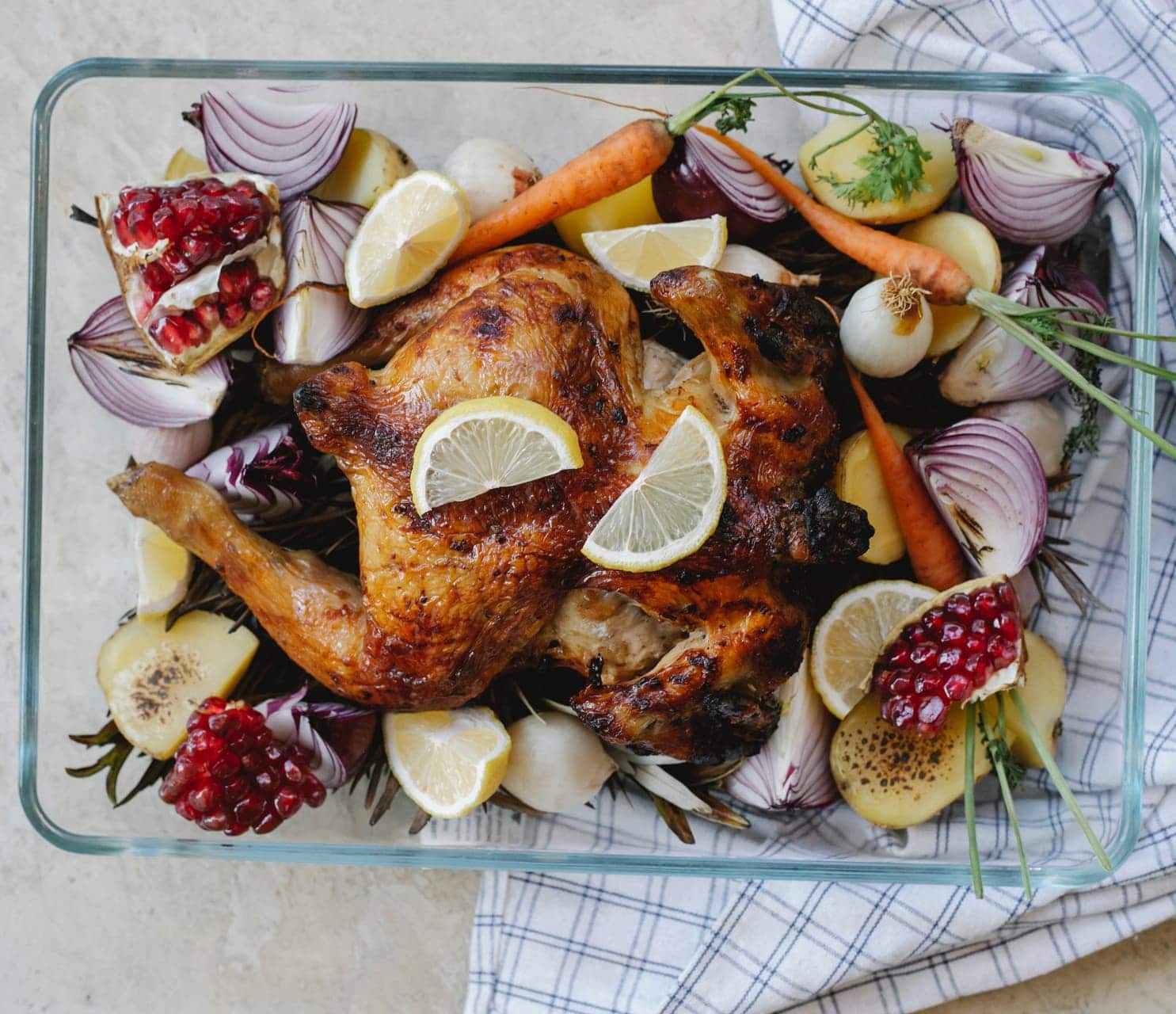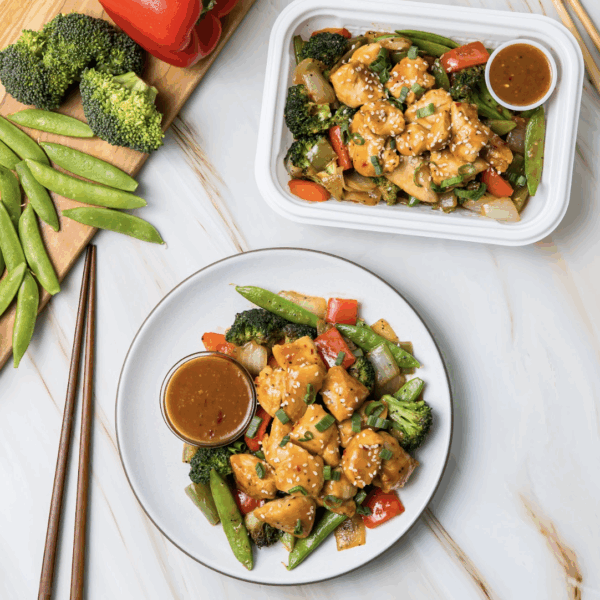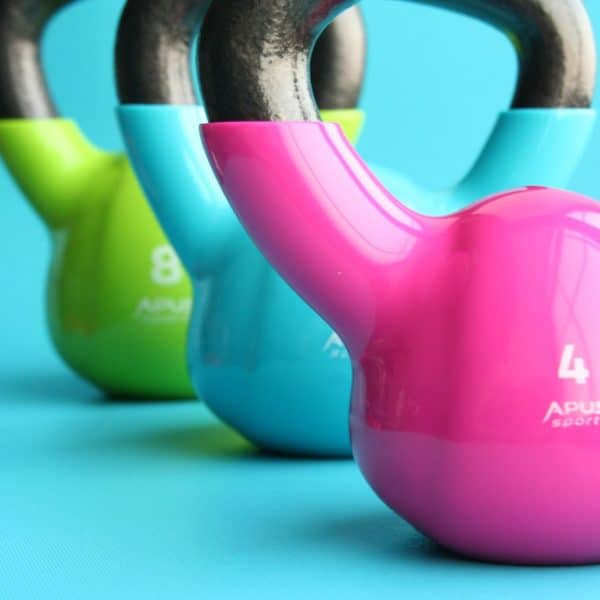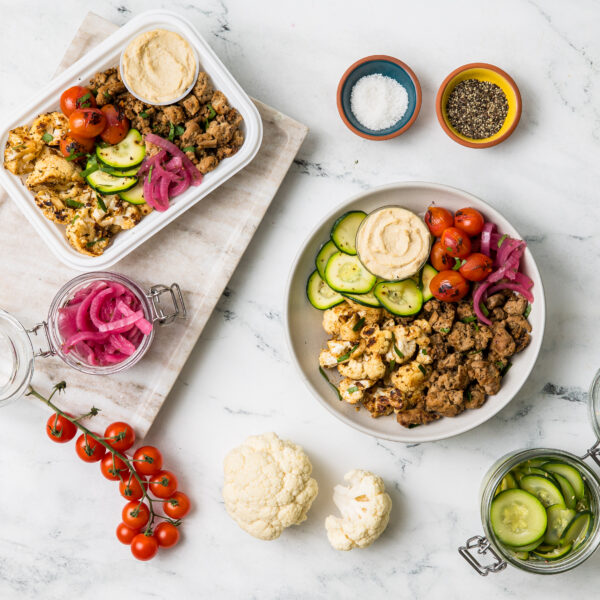Turkey and chicken are two types of poultry full of protein and other vitamins and minerals – but how do they compare when it comes to health? Both are rich in B vitamins and other important nutrients, but they have some differences, too. Read on to decide if you’re team turkey or team chicken.
Health Benefits of Turkey
Turkey is a highly nutritious bird that’s both hunted in the wild and raised on farms. The nutrients available depend on the cut of meat – white vs. dark. If you’re eating active turkey muscles such as the legs or thighs (the dark meat!), you’ll encounter more fat and calories than its white meat counterpart, which has more protein and fewer calories.
Turkey is also a great source of many vitamins and minerals, especially multiple B vitamins. The main minerals found in turkey are zinc, phosphorus, selenium, magnesium, and potassium.
Turkey is known to reduce the risk of certain cancers, including bladder, breast, lung, and stomach cancer. In addition, since turkey doesn’t have any carbohydrates, it’s considered a low glycemic index (GI) food. Meaning, it can help you keep your blood sugar under control, whether you have diabetes or are just trying to keep it stable. Furthermore, low GI foods can help to increase levels of HDL cholesterol – the “good” cholesterol.
Health Benefits of Chicken
One of the most popular types of meat, chicken, is packed with important nutrients like protein and phosphorus. Similar to turkey, chicken boasts a nutrient roster full of B vitamins, selenium, and more. B vitamins are important because of the roles they play in energy production, DNA synthesis, and brain health. Selenium is essential to immune function and protects thyroid health and fertility. Protein plays a crucial role in building and repairing tissues and is important for optimizing bone health, all while maintaining muscle mass.
Chicken can be helpful for weight loss and overall satiety (i.e., eating satisfaction!). When you increase your protein intake, you feel more full. Protein is also a great way to promote muscle growth when appropriately paired with exercise and resistance training. If getting in shape is the goal, chicken is definitely something you should work into your diet. These same benefits come from consuming turkey, too!
However, it is important to remember that not all chicken is good for you. Fried and breaded chicken-like tenders and nuggets are high in carbs, calories, and unhealthy fats (not our chicken tenders, though!). Chicken in the form of deli meat is usually highly processed and contains high amounts of sodium and preservatives. Opt for a healthier cooking method like baking, slow cooking, poaching, or pan-frying.
Turkey vs. Chicken
As you can see, turkey and chicken stack up pretty evenly when it comes to nutrients and protein. Both are rich in protein and B vitamins and have a bunch of great health benefits when prepared the right way. Now to answer the big question – which is healthier?
Honestly? It all depends on your personal health goals! Both proteins can be prepared in healthy and unhealthy ways, but they’re so similar nutritionally that you can simply pick the one that tastes best to you. Even dark meat contains different nutrients when compared to white meat! When it comes to your animal protein intake, variety and quality are most important. Aim for the highest-quality that you can afford and eat a wide range of different proteins, from chicken and turkey to beef, pork, and seafood.
If you’re struggling to fit all of the necessary nutrients into your diet, look no further. Chef-prepared, nutritionist-approved meals from Snap Kitchen come ready-to-heat and are delivered right to your door. Our Za’atar Chicken or Turkey Meatloaf are great places to get started. If you want to cook on your own tonight, try this Avocado Ranch Rotisserie Chicken recipe (and be sure to let us know how it is!).





Leave a Reply
1 Comment
Excellent article! Turkey has about the same nutritional value as chicken. The white and dark meats of turkey, on the other hand, are slightly leaner. However, for most people, these distinctions are insignificant. As stated accurately in the article, I feel that the difference in nutrition is mainly dictated by your unique health goals and how the food is cooked (healthy or unhealthy ways).